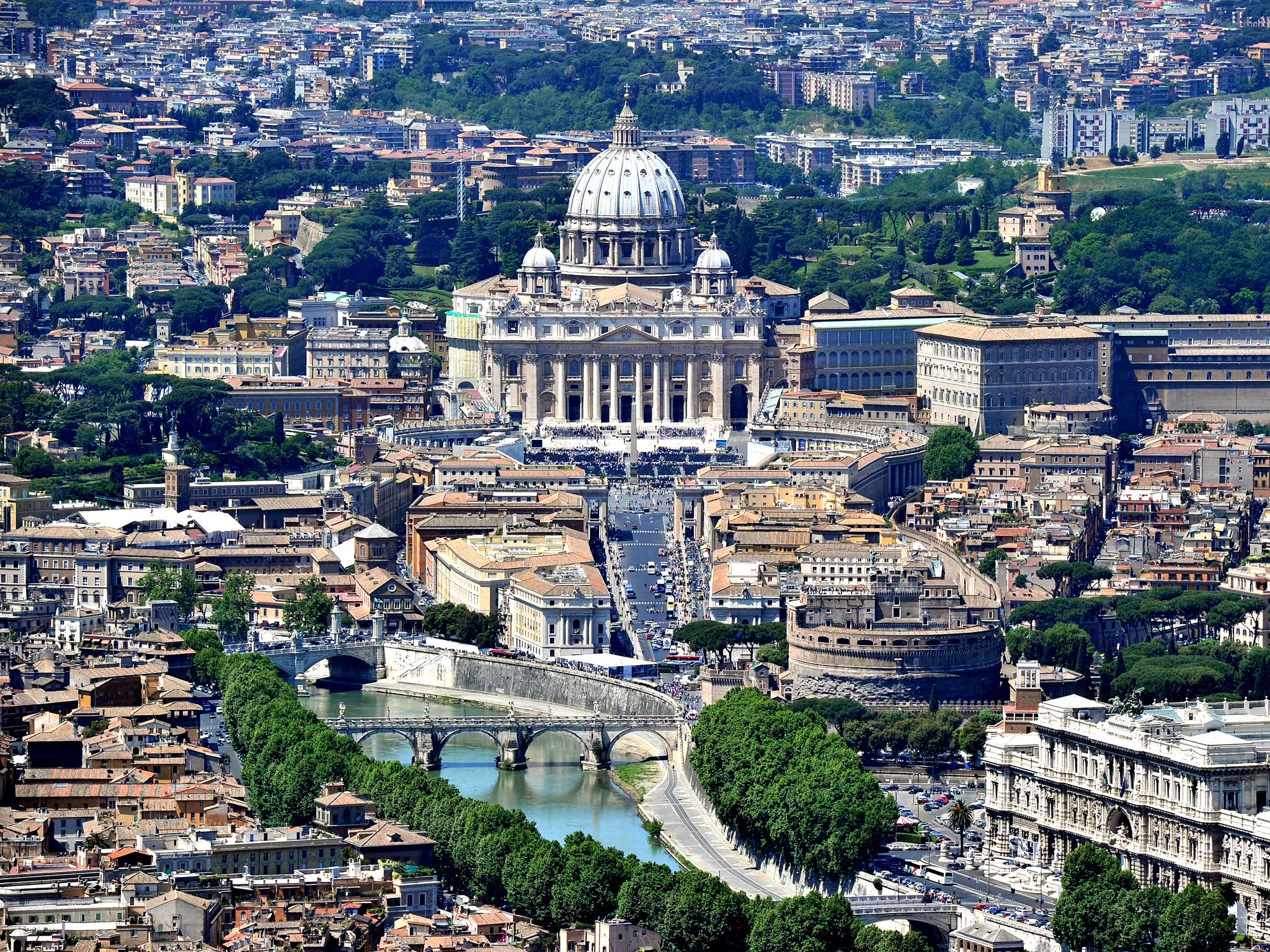Rome wasn't rebuilt in a day: Mayor faces long and costly fight to make its ancient treasures traffic-free – so he's looking for sponsors
Ignazio Marino's plans dwarf those for the pedestrianisation of Trafalgar Square in London

As relentless traffic continues to bring the centre of Rome to a standstill, philanthropists across the world are being invited to fund a scheme by the city's mayor to pedestrianise the Via dei Fori Imperiali.
The left-wing Ignazio Marino has ambitious plans for Rome, and wants to shut out traffic once and for all from the glorious avenue that runs from Mussolini's Altar of the Fatherland to the Colosseum, via the ancient forums. It is to become an "archaeological park" from which Italy's more recent obsession, the automobile, is banished.
But while the need to preserve the capital's cultural heritage is not in doubt – Mr Marino's plans dwarf those for the pedestrianisation of Trafalgar Square in London – where the money is going to come from is less clear.
Experts have been warning for decades that Rome's relentless traffic is grinding its monuments to dust. "In my vision for the next 15 to 20 years, the birth of the archaeological park is the first step," said Mr Marino last week. "I'm not a chemist. But I listened carefully to the explanations of the experts on the damage suffered by Trajan's Column, the Colosseum and the Temple of Saturn."
Mr Marino is hoping for big donations from companies and even other countries. "I met three CEOs of multinational corporations," he told Corriere della Sera last week. He added that he had also received offers of support from Azerbaijan and the United Arab Emirates.
"If in Trenton, New Jersey, or in Sydney there is a billionaire [who wants to contribute], they are welcome," Mr Marino said. Perhaps optimistically, the Mayor wants their money but not their advertising or vulgar publicity. "I'm thinking about philanthropy," he said. "Certainly not sponsorship by big businessmen who then exploit images of this or that monument."
He contrasted his vision of fundraising with that organised for the Colosseum, which will take advertising from the leather goods label Tod's in exchange for the €25m needed to restore the monument.
Given the Italian state's seeming inability or unwillingness to care for its heritage – despite the lucrative tourism it brings – many observers feel private sponsorship is the way ahead, not only for Rome, but for precious sites across the country.
Il Sole 24 Ore, Italy's business newspaper, said in 2010 that the solution for crumbling Pompeii was a private sponsor, which should be allowed to place its logos at the entrance. "Precisely because it belongs to all humanity, its management should be taken away from a state that has shown itself incapable of protecting it," the newspaper said.
It is not clear to what extent Mr Marino's plans are grounded in reality. Critics have pointed out that on-the-hoof urban planning announcements are a welcome distraction from the public transport scandal enveloping the city. Investigators claim that city officials, described by Mr Marino as "worse than the Mafia", colluded in a scam that has poured €70m a year, made from forged bus and metro tickets, into slush funds.
Antiquities might not be the only benefactors were Rome's principal central avenue permanently pedestrianised. More Romans might wake up to the possibility of cycling rather than using cars or buses. Cyclists who brave the Via dei Fori Imperiali currently risk being clipped by speeding taxis, particularly at the narrow Colosseum-end of the road. Romans are, like most Italians, car lovers: three times as many own vehicles compared with Londoners.
Partial and temporary road closures have proved popular with tourists. "We will have a place where people can bike, walk, enjoy this incredible archaeological site," Mr Marino said. "We need to give this place back to the entire planet."
Subscribe to Independent Premium to bookmark this article
Want to bookmark your favourite articles and stories to read or reference later? Start your Independent Premium subscription today.

Join our commenting forum
Join thought-provoking conversations, follow other Independent readers and see their replies